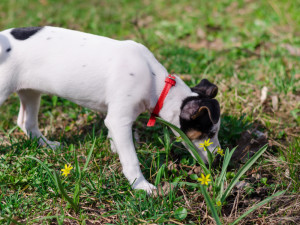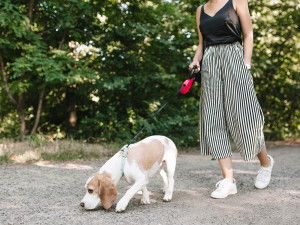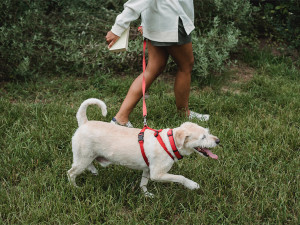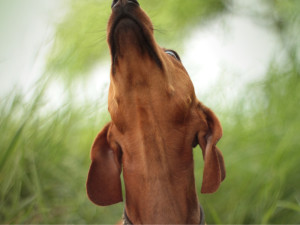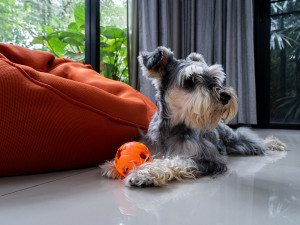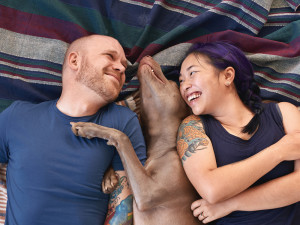K9 Nose Work Let’s You See The World Through Your Dog’s Nose
The latest training activity develops your dog’s natural scenting abilities through fun and games.
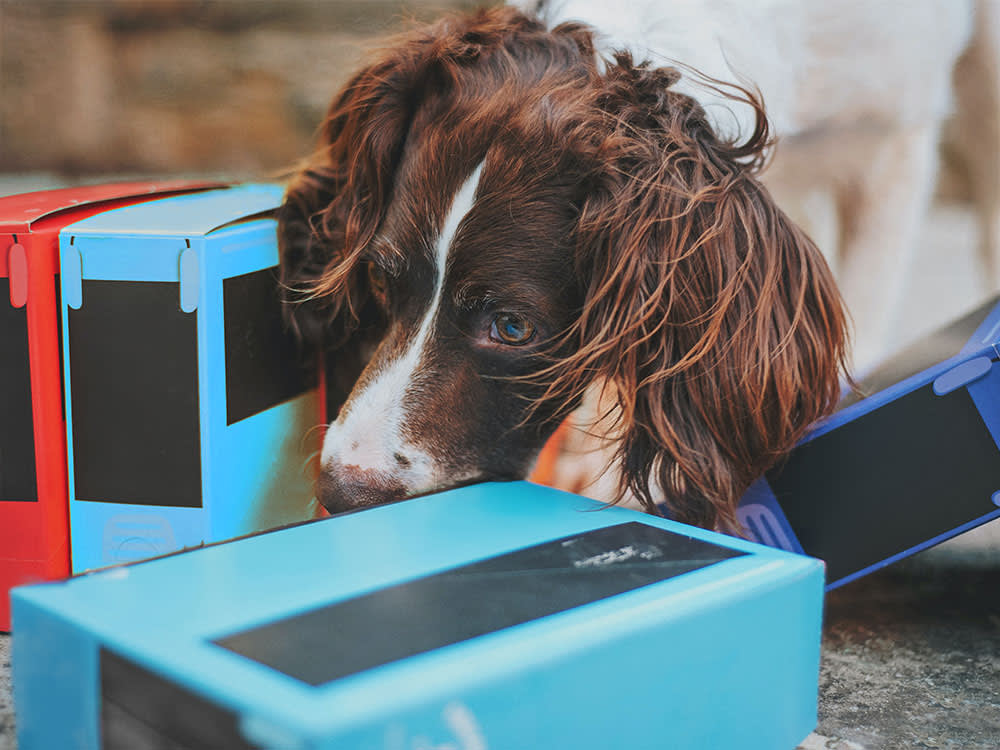
share article

Your pet wants you to read our newsletter. (Then give them a treat.)
Dogs have many hidden talents, but their sense of smell is more like an underestimated talent. Even the laziest dog has a nose firing at a million cylinders all the time. They can’t help it. A roly-poly pet always knows when to wander over to the kitchen just as food is coming out of the oven. A social dog checks the smell mail at their favorite tree stump on every walk. And when a bored or anxious dog chews up your shoes, they absolutely know they’re yours. So that’s why nose work for dogs is a rising sport amongst pet parents who realize turning their dog’s superpower into a fun activity with a competitive edge is great fun for both of them.
What is Nose Work for Dogs?
Nose work for dogs is a recreational sport very similar to scent tracking and is rapidly expanding in popularity among pet parents. The goal is for the dog to locate a hidden target scent and alert their handlers to its exact whereabouts in the environment. The tables are turned in this activity as the dog teaches the person to trust the dog’s superior scenting capabilities.
K9 Nose Work® as a sport was developed in southern California in 2006 by a team of highly experienced individuals: Amy Herot, Jill Marie O’Brien, and Ron Gaunt — all professional trainers and handlers with working certified detection dogs. Herot writes, “Our detection dogs always look so satisfied and are relaxed after a search. It seemed like companion dogs should have the opportunity to enjoy the same benefits.”
Can small dogs do nose work?
The great thing about nose work training for dogs is that any type of dog can participate — big or small — not just a special breed. “One of the greatest advantages,” adds Herot, “Is that the sport suits every kind of dog and the activity requires no previous skill on the part of the handler. Anyone can do it.”
Inexhaustible puppies, high-drive sport dogs, seniors, socially or physically challenged dogs and happy well-adjusted pets are all given equal access to the positive outlet that nose work training provides.
Benefits of Nose Work for Dogs
Besides proving themselves superior with their sense of smellopens in a new tab, other benefits to nose work for your dog include constructive physical exercise and intense mental stimulationopens in a new tab. The nose work training process encourages the dog to refine their innate hunting and scenting skills.
Owners, on the other hand, get an advanced course on dog behavior by learning to read frequently overlooked subtleties of canine body languageopens in a new tab. Handlers are taught to quietly support their dogs as the dogs develop individual searching styles.
Why is Nose Work Dog Training Different?
In classic learning environments, like group obedience classesopens in a new tab, dogs may be either nervous or overstimulated and can have difficulty absorbing new information. Often pet parents are preoccupied with steering clear of the neighboring dog, and may be frustrated by their pet’s wary or overzealous nature. But in the nose work classroom, searches are run one by one, allowing dogs with any number of normally challenging behavioral issues to focus and learn.
Working individually and without social stimulation allows the dog to channel energy, leaving dog and handler free to concentrate and learn from each other. Natural dog behaviors commonly regarded as “uncivilized” are encouraged as part of drive building in the game of scenting and searching. Pulling through the door excitedly, turning full attention on the environment, and leaping about playfully are not considered problem behaviors here.
Start Nose Work Training With Your Dog
Nose work adapted essential elements of detection dog trainingopens in a new tab into a motivational and portable game specifically designed for companion dogs, requiring little space opens in a new taband minimal equipment to practice. Both physical exercise and mental stimulation can be met even within a small space. The thrill of exploration and pursuit seems to magnify the intensity of the game and compound the reward value.
Beginners
Encourage the dog to explore multiple open boxes for the scent of a hidden reward — usually a savory treat or a favorite toy.
Gradually increase search difficulty by changing environmental variables: closing the boxes, raising the height of the hide, introducing varied objects to the search environment and eventually moving the search outside of the box.
While the dog catches on to the game and builds drive for searching, pair the target odor with the reinforcing treat.
Go at your dog’s pace (and as you get better at reading behavioral indicators). Your dog will eventually associate the target odor with the reward (the treat or toy).
Ultimately the treat/toy should be removed and delivered by the person when the dog hints they found the target odor.
Competitive
For handlers wishing to train to a specific standard and test their nose work skills, titles can be earned for the K9 Nose Work® sport through trials organized and sanctioned by the National Association of Canine Scent Work (NACSW). The only prerequisite for trialing is passing the Odor Recognition Test (ORT), in which the dog identifies the appropriate target odor for his level of competition: sweet birch for NW1, aniseed for NW2, clove bud for NW3. Elements of competition include box drills, interior building, exterior area, and vehicle searches. Practicing for competition is easy and can be done just about anywhere.
With nose work dog training, pet parents learn to trust their dogs to be the best guides and teachers. Here, the dog is always right, always good, and we are allowed an opportunity to achieve a better understanding of them. Nose work succeeds as a method for deepening relationships with canine companions as people learn how they experience the world.
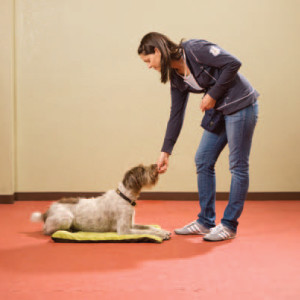
Sandra Mannion, CPDT
Sandra Mannion is an Albany, Calif.-based dog trainer and animal behavioral consultant.
Related articles
![A woman with a book in her hand walking her dog on a leash in a grassy park.]() opens in a new tab
opens in a new tab“Scent Walks”: Come On, All the Dogs Are Doing It
Why you should let your dog get all their sniffs out on a stroll.
![Close up shot of a brown dog sniffing upward out of frame with blurry grass in background]() opens in a new tab
opens in a new tabCrotch Sniffing: Crude or Customary?
Is it time to teach your dog some boundaries?
![Miniature Schnauzer dog playing with a ball at home]() opens in a new tab
opens in a new tab9 Fun and Educational Toys for Dogs
Behaviorist Karen London shares her list of must-have toys for dogs.
![Happy pet owners cuddling with their dog]() opens in a new tab
opens in a new tab10 Ways to Spark Joy in Your Dog’s Life
(And your own, while you’re at it.)
